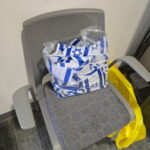No Worker Left Behind?
Vickie Choitz presented her paper, “A New National Approach to Career Navigation for Working Learners,” at a forum at the Center for American Progress. Panelists included Phil Jarvis from the National Center for Work/Life, Craig Herndon, the Director of Career and Educational Resources, Virginia Community College System, Elliot Brown, the Founder and Executive Director of Springboard Forward, and Mal Caravatti, the Associate Research Director for the American Federation of Teachers.
Phil Jarvis, the Senior Vice President of the National Center for Work/Life gave opening statements noting that “What we’re doing isn’t working.” Although there are career advice and counselors available at various levels in the American educational system, often the numbers of students needing direction are too great to receive individual attention. Thus, a majority of students leave various educational institutions unprepared for the realities of the workforce or incapable of attaining their desired work positions. This results in a generally dissatisfied workforce, a business community with a shortage of qualified workers, and unemployed workers who are generally unqualified to fill the available positions.
The paper, “A New National Approach to Career Navigation for Working Learners,” seeks to establish a dialogue that would eventually lead to the establishment of a national career navigation system that would allow workers at all levels to access helpful information to improve their careers and the quality of their lives. This paper began while author Vickie Choitz worked at Jobs for the Future and continued when she became the Senior Policy Analyst for the Center for Law and Social Policy. The primary emphasis of Choitz’s paper is the growing number of adults who are juggling school, work, and home in an effort to increase their income. In the paper; Choitz notes that “by one estimate, 75 million working learners are trying to balance work, school, and family.” It is this segment of the population that Choitz hopes to aid and reduce through adequate career advisement.
She offers several excellent examples of various programs that have effectively prepared students for the workforce. One program was the “No Worker Left Behind” in Michigan which provides underemployed or unemployed workers tuition at a state community college or training program from two years if they meet the necessary requirements. In a similar vein, the Virginia Community College system established the “Education Wizard” to give their students an opportunity to make “educational choices with career goals in mind.”
Tilla Bradley is an intern at the American Journalism Center, a training program run by Accuracy in Media and Accuracy in Academia.




